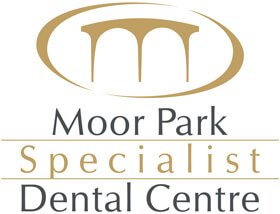Moor Park Specialist Dental Centre
Periodontics
Periodontics is the branch of dentistry that aims to diagnose and treat diseases affecting the supporting tissues (gums and bone) around the roots of teeth or implants.
Why has my dentist referred me to a Periodontal Specialist?
A Specialist is trained to diagnose and treat the more difficult, complex and/or challenging cases. In addition, some treatments present technical challenges that can more readily be met with specialist equipment not routinely available in general dental practice.
A Specialist in Periodontics (a Periodontist) is a dentist who has undertaken postgraduate specialist training in the discipline of periodontics.

Sometimes the only way to detect periodontal disease is through a periodontal evaluation. A periodontal evaluation may be especially important if you notice any of the following:
- Red, swollen or tender gums
- Gums that have pulled away from the teeth
- Persistent bad breath
- Pus between the teeth and gums
- Loose or separating teeth
- A change in the way your teeth fit together when you bite
- A sore or irritation in your mouth that does not get better within two weeks
Periodontal FAQs in Northwood
Apart from increasing the lifespan of your teeth/implants, there is increasing evidence of links between untreated periodontal diseases and general health problems. In particular, there is on-going research on the links with diabetes, heart/cardiovascular diseases, osteoporosis, strokes and also with premature births in mothers with periodontal problems.
Smokers are known to have a much greater risk of having periodontal problems when compared with non-smokers. Doctors and medical specialists are becoming more aware of the need for periodontal treatment to be provided before other medical treatment can be provided.
Your first visit will be a consultation, where we will discuss the issues raised by your dentist or hygienist. Following a detailed history, a thorough examination will be carried out specific to the problem site(s). Investigations such as radiographs (x-rays) may be required to help diagnose the problem. You will be informed if this is required. Subsequently, our Periodontist will discuss their findings with you and your dentist and inform you of the treatment options available.
Periodontal treatment is often less expensive than the option of tooth extraction and replacement with a bridge, implant, or removable partial denture. The cost will vary depending on the nature of the problem and the tooth affected. An estimate of the cost of your treatment will be provided on the day of your consultation. Payment is expected at the end of each visit.
Clinical Cases





